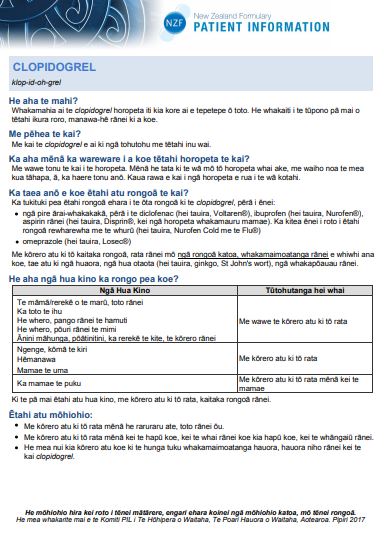Like all medicines, clopidogrel can cause side effects, although not everyone gets them. Common side effects include indigestion, tummy pain, nausea (feeling sick) and diarrhoea (runny poos). These usually go away with time. Tell your doctor if troublesome.
Increased risk of bleeding
Clopidogrel increases your risk of bleeding. You might bleed or bruise more easily while you are taking clopidogrel. Minor bleeding such as a nosebleed should usually stop on its own. If you have a fall or hurt your head or body, get medical attention immediately, even if you feel okay.
Signs of severe bleeding
If you have any of the following signs of bleeding, contact your doctor immediately or ring Healthline for free 24-hour health advice 0800 611 116:
- becoming pale, very weak and tired, or short of breath
- any bleeding from your gums or cuts or nosebleeds that won’t stop
- blood in your stools (poo) – black, tarry stools
- blood in your urine (wee) – pink, red or brown-coloured urine
- coughing up blood or vomit that looks like coffee grounds
- sudden numbness or weakness of your arm, leg or face, especially if only on one side of your body
- sudden confusion, difficulty speaking or understanding others
- sudden difficulty in walking or loss of balance or co-ordination
- suddenly feeling dizzy or sudden severe headache with no known cause.
Read more about medicines and side effects and reporting a reaction you think might be a side effect.










